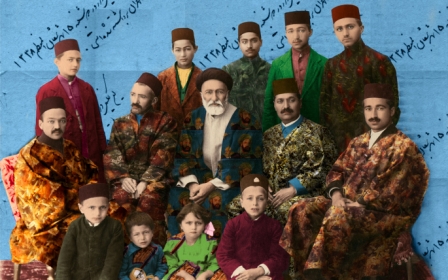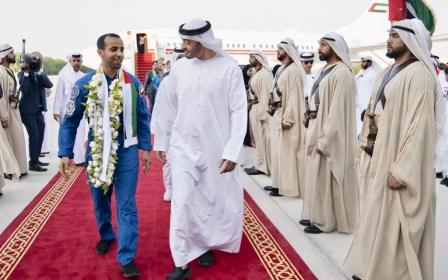Escalation with Iran 'serves no one': UAE calls for diplomacy with Tehran

The United Arab Emirates has called on Iran to go to the negotiating table with Gulf Arab states and world powers, adding that any escalation with Tehran "serves no one".
Tensions between Iran and its Gulf Arab neighbours have risen significantly in recent months, and relations with the West have worsened since Washington pulled out of the landmark 2015 nuclear deal and reimposed crippling sanctions.
However, speaking at the Abu Dhabi Strategic Debate on Sunday, Anwar Gargash, the UAE minister of state for foreign affairs, said there was "room for collective diplomacy to succeed," if Tehran were to seek out a new deal that would deescalate tensions in the region.
'There could be a path to a deal with Iran that all parties might soon be ready to embark on. It will be long, and patience and courage will be required'
- Anwar Gargash, UAE minister
"I believe there could be a path to a deal with Iran that all parties might soon be ready to embark on. It will be long, and patience and courage will be required," Gargash said.
"For such a process to work, it is essential that the international community is on the same page, especially the US and the EU, as well as the Arab Gulf states."
Tensions spiked in the Gulf after attacks on two oil tankers in the strategic Strait of Hormuz in June and a major assault on two Saudi Aramco oil facilities in September.
Iran has denied any involvement in the attacks, with Yemen's Iran-aligned Houthi movement claiming responsibility for the Aramco bombing.
Adding to the souring mood are Iran's economic struggles, precipitated by the US's unilateral withdrawal from the nuclear pact.
Under the nuclear deal signed in 2015 by Iran, the US, Britain, France, Germany, China and Russia, Tehran was offered more than $110bn a year in sanctions relief and a return to the global economy in exchange for halting its drive for a nuclear weapon.
But Washington's abandonment of the deal in May 2018, followed by its re-imposition of sanctions, prompted Iran to begin a phased suspension of its own commitments.
'Collective diplomacy'
Earlier this week, Iran said it was resuming uranium enrichment at its underground Fordow plant.
Iran is currently believed to be producing five kilograms of low-enriched uranium a day at a level of 4.5 percent, far short of the standard 90 percent threshold needed for "weapons-grade" uranium.
Gargash said that, when it came to the nuclear deal, the international community "should not fall for the false choice between war on the one hand or a flawed JCPOA [the 2015 deal] on the other".
"Further escalation at this point serves no one, and we strongly believe that there is room for collective diplomacy to succeed," he said.
Washington has said it hopes the sanctions will force Iran into negotiations to reach a wider deal that would place indefinite curbs on Iran's nuclear programme and also halt its development of ballistic missiles.
But Iran's Supreme Leader Ayatollah Ali Khamenei has banned Iranian officials from holding such talks unless the United States returns to the nuclear deal and lifts all sanctions
Middle East Eye propose une couverture et une analyse indépendantes et incomparables du Moyen-Orient, de l’Afrique du Nord et d’autres régions du monde. Pour en savoir plus sur la reprise de ce contenu et les frais qui s’appliquent, veuillez remplir ce formulaire [en anglais]. Pour en savoir plus sur MEE, cliquez ici [en anglais].




